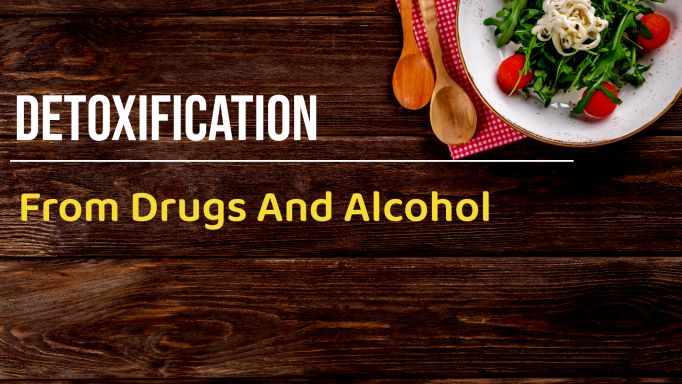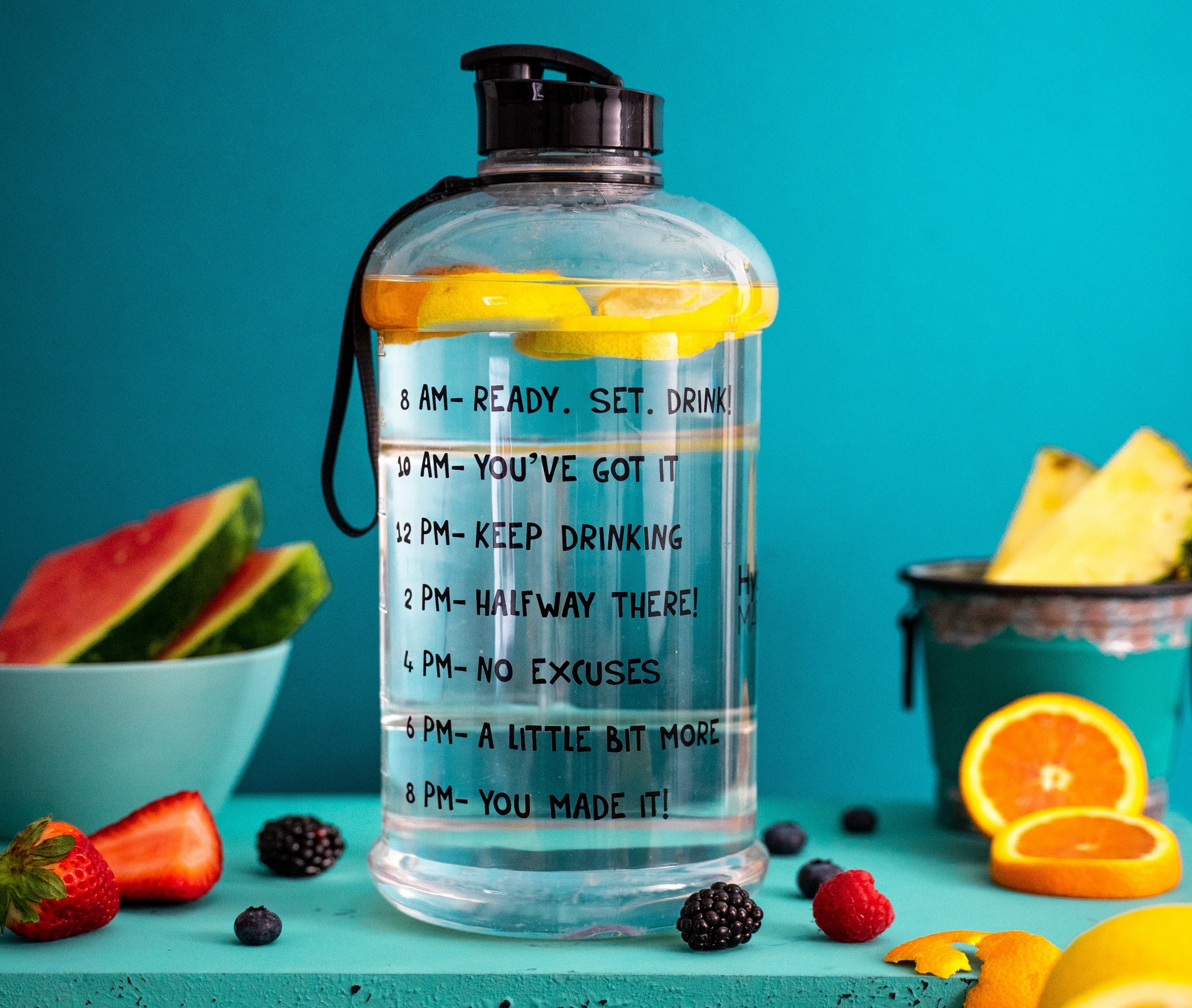Detoxification from drugs and alcohol is not an easy procedure but it’s a highly profitable one. When you are dependent on alcohol or drugs, you reach a point when enough is enough. You’re weary of passing out, waking up hungover, and having no recollection of the previous night’s events. You’re sick of failing friends and family repeatedly. You want to halt. This acceptance is the first step toward healing. However, how do you go about alcohol and drug detox?
 Alcohol and drugs may hurt both the addict and their loved ones. A detox may seem to be the sole option for dealing with alcohol and drugs. However, it’s important to bear in mind that detoxification from drugs and alcohol at home may be hazardous. Detoxification at a professional rehab center is often suggested as the most effective way of resolving alcohol and drug addiction and dependency.
Alcohol and drugs may hurt both the addict and their loved ones. A detox may seem to be the sole option for dealing with alcohol and drugs. However, it’s important to bear in mind that detoxification from drugs and alcohol at home may be hazardous. Detoxification at a professional rehab center is often suggested as the most effective way of resolving alcohol and drug addiction and dependency.
Withdrawal from alcohol and drugs is not simple, and not everyone is capable of doing it alone. This challenge is why medical experts provide alcohol and drug detoxification and alcohol and drug withdrawal therapy at rehab centers throughout the country.
THE IMPORTANCE OF DETOXIFICATION FROM DRUGS AND ALCOHOL
Detoxification from drugs and alcohol is the initial step in alcohol and drug treatment. Alcohol and drugs are fully eliminated from your system during this period. Withdrawal symptoms usually decrease after one to two weeks of beginning detox; however, this time frame may be extended depending on the severity of your AUD. From there, you may concentrate on other elements of your rehabilitation, such as various hobbies, treatments, counseling sessions, and support alternatives.
Alcohol and drugs are depressants that your body develops a tolerance to over months and years of use. Your brain ultimately stops making specific chemicals it gets from alcohol and drugs, causing you to develop an addiction to the substance. That is why it takes time for your body to adapt when you stop drinking. This is why withdrawal symptoms such as headaches, fever, nausea, irregular heartbeat, and hallucinations occur.

Certain drugs and drinks are not easy to quit because of concern about the withdrawal symptoms associated with alcohol and drug detox. While some individuals may have relatively mild side effects from alcohol and drugs, others may experience severe discomfort. Withdrawal symptoms may develop rapidly and violently, which is why it is essential to detox under the supervision of medical experts. Professionals at a rehab center will be able to assist you in managing your pain via the use of various medicines. This enables you to concentrate on your rehabilitation and improvement.
OTHER ARTICLES
- Eating A Plant-Based Diet
- Weight Loss Vegetarian Diet
- Finding What You Want In Life
- Top Tips For Weight Loss
SYMPTOMS OF ALCOHOL AND DRUGS DETOX
The withdrawal symptoms associated with detoxification from drugs and alcohol may range from minor to life-threatening. Frequently, the duration and intensity of your alcohol and substance use disorder (AUD) will influence the withdrawal symptoms you encounter. Individuals who have battled with years of binge drinking, for example, are more prone to experience severe withdrawal symptoms such as seizures or delirium tremens.
Minor withdrawal symptoms from alcohol and drugs include the following:
- Anxiety
- Sweating
- Nausea
- Insomnia
- Headaches
The following are more severe alcohol and drug detox withdrawal symptoms:
- Tremors
- Seizures
- Irregular hallucinations
- Disorientation
- Tremendous delirium (in rare cases)
Although delirium tremens is a rare complication of alcohol and drug withdrawal, it is the most severe. It often begins two to five days after your last drink and may be fatal. However, fewer than 5% of individuals who stop drinking suffer delirium tremens.
Alcohol and drug detox should be closely supervised by a medical expert due to the severity of certain withdrawal symptoms. This is especially valid for people with a background marked by lung or heart disease, as well as those with other medical problems, since withdrawal symptoms may rapidly increase. Your expert will be able to monitor your blood pressure and heart rate to ensure that your situation does not deteriorate. You may also discuss your symptoms with them, as well as any discomfort you are experiencing. This information assists your medical staff in determining which medication will help you feel better.
THE DETOXIFICATION PROCESS
Each individual’s requirements for detoxification from drugs and alcohol vary. The drug detoxification procedure enables detox to get individualized care. In the majority of instances, the procedure consists of three steps:
Evaluation
The medical team conducts physical and mental health screenings on all new patients. Blood tests are used by drugs to determine the quantity of medication in a patient’s system. This assists in determining the appropriate dosage of medicines.
Additionally, a thorough examination of medical, and psychiatric histories is conducted. This data lays the groundwork for the patient’s long-term treatment strategy.
Stabilization
Stabilizing the patient with medical and psychological treatment is the next stage. Stabilization’s objective is to keep the patient safe from injury. Doctors may prescribe medicines for addiction therapy to avoid problems and alleviate withdrawal symptoms.
Preparing for Treatment Admission
The last stage of detox is to prepare for treatment. Doctors educate their patients on the treatment procedure and the associated risks. After detox, inpatient treatment provides the greatest chance of recovery.
SELF DETOXIFICATION FROM DRUGS AND ALCOHOL AT HOME
Many individuals try self-detoxification at some time, and it is often a series of unsuccessful efforts that leads a person to seek treatment in the first place. That is not to suggest that individuals have not successfully self-detoxed from alcohol and drugs.
If you elect to detox at home, you must do it securely. Consider the following considerations while detoxifying at home:
Eliminate alcohol and illicit drugs from your home:
While this may seem self-evident, it is a crucial first step in self-detoxing. When you initially begin to experience withdrawal symptoms, you may find that you have difficulty controlling your urges. Avoid temptation entirely by removing any alcohol or drugs from your possession.
Organize your schedule:
While clearing your calendar for days or weeks may seem difficult for some, it is essential if you want your detox to be effective. Take some time off work and put your duties on hold – at least temporarily – so that you can concentrate on your recuperation.
Obtain assistance:
Simply because you are detoxing from alcohol and drugs at home does not mean you should be doing it alone. Find a friend or family member who can assist you in remaining safe during the process and will seek medical attention if your withdrawal symptoms become too severe.
THE RISKS OF ‘AT-HOME’ DETOXIFICATION FROM DRUGS AND ALCOHOL AND WITHDRAWAL
Many individuals are under the misconception that detoxing from alcohol and drugs isn’t as hazardous as detoxing from other drugs. However, this notion couldn’t be farther from reality. There are significant, even life-threatening dangers associated with detoxing from alcohol and drugs—especially when you’re doing it on your own.
When you quit consuming alcohol and drugs abruptly, the body responds with a variety of withdrawal symptoms. These symptoms are unpleasant, difficult to control, and may persist for weeks. Without any medicine to assist you through it, the procedure is much tougher. Sudden alcohol and drugs withdrawal may induce hallucinations, convulsions, and even heart failure that may end in death. Although this is uncommon, you never truly know how your body will respond to detox until you’re going through it.
Additionally, if you used additional drugs while drinking—such as heroin, prescription medicines, cocaine, or meth—withdrawal symptoms may be exacerbated or unexpected.
For some individuals, the agony is so severe that they opt to start drinking again. It ends up becoming a loop of wanting to stop but not being able to because of the withdrawal symptoms. When you join an inpatient alcohol and drugs treatment program, you’re isolated from your surroundings and harmful behaviors.
Many people who battle with alcohol and drugs addiction are simultaneously fighting other medical problems such as depression, anxiety, or personality disorders. People often use alcohol and drugs to self-medicate themselves, but when they quit drinking, these illnesses may develop. Indeed, some individuals are unaware they have a mental health problem until they quit drinking.
By enrolling in an addiction treatment program, you will get the medical care that will address your alcohol and drug withdrawal drugs, as well as any underlying co-occurring illnesses.
WHAT TO EAT WHILE SELF-DETOXIFYING
When your body is detoxing from alcohol and drugs, the last thing on your mind is usually food. Eating is critical for recovery since alcohol and drugs impair your body’s ability to absorb and use nutrients.

Focus on Hydration First
Withdrawal symptoms from alcohol and drugs include tiredness, anxiety, sadness, lack of appetite, nausea, and vomiting. Somewhere in the range of twenty-four (24) and seventy-two (72) hours following the last drink, these symptoms are most acute and may impair your ability to eat.
Make sure to consume lots of fluids during this time as this will assist your body in rehydrating and eliminating toxins. Hydration options during the early stages of withdrawal include water, juice, broth, ice pops, and gelatin.
VIDEOS BY SAME AUTHOR
Begin with a Well-balanced Diet
Once you can eat again, it is important to maintain a nutritious diet. Consume meals from a range of food categories in the appropriate quantities to assist in meeting your caloric requirements. Consume lots of fruits and vegetables, but don’t overlook the value of healthy grains and lean protein sources.
Ensure You’re Getting Enough Vitamins and Minerals
When you’re detoxing at an inpatient or outpatient detox treatment center, your doctor will often prescribe medicines to assist with alcohol and drug withdrawal symptoms. You will not have such privilege at home. However, certain vitamins and minerals are often helpful and aid in the removal of pollutants. B vitamins, multivitamins, vitamin C, vitamin E, and calcium are just a few of them.
THE BENEFITS OF MEDICALLY SUPERVISED DETOX
Due to the severe dangers involved with self-detoxification from drugs and alcohol, you should avoid attempting to detox at home. A much safer alternative is to enroll in an inpatient or outpatient treatment program that is supervised by a team of medical experts who can provide you with the necessary care.
Several of the advantages of medical detoxification include the following:
- Medical reassurance.
- Peer assistance.
- An organized and safe atmosphere.
- Prevention of relapse.
- Interventional therapy.
- Assistance to family members.
- Prolonged therapy (aftercare).
You have many choices for where to detox:
Inpatient Care:
By choosing to undergo withdrawal in an inpatient treatment center, you will get 24-hour care from a team of medical experts. Inpatient therapy is often suggested for those who have been drinking for an extended period or who have taken an excessive quantity of alcohol and other drugs throughout their addiction. Another advantage of inpatient therapy is that, if necessary, a physician may prescribe medicines to assist you in managing withdrawal symptoms.
Outpatient Care:
Outpatient treatment is a possibility if your addiction was not severe. Outpatient detox entails several visits to a treatment center throughout the detox process. You will detox at home for the bulk of outpatient detox. At the point when you step into a treatment place, you may be given medicines to alleviate withdrawal symptoms.
GETTING STARTED ON THE PATH TO RECOVERY
You are capable of overcoming your alcohol or drug addiction and achieving sobriety. The critical thing to remember is that self-detoxing from alcohol and drugs at home is never safe. Those who drink excessively and have tried self-detox in the past are at the greatest risk of problems from alcohol and drug withdrawal.
Although joining a treatment program may be intimidating, it is the safest method if you want risk-free detoxification from drugs and alcohol. While friends and relatives may provide emotional support, they are not medically qualified to know what drugs are effective for alcohol and drug withdrawal.
By attending alcohol and drug addiction treatment, you’ll benefit from the care of a medically trained team of experts who can assist you through the withdrawal process and lead you toward recovery.